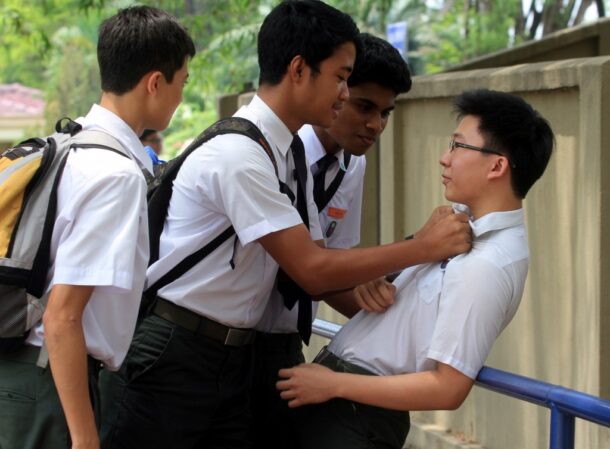By LIM MAY LEE
alltherage@thestar.com.my
ANTI-bullying activist, Actionwork Worldwide director Dr Andy Hickson has probably seen more of Malaysia than most Malaysians.
“I lived in the jungles of Kelantan for two years in the 1970s,” he recalled fondly, calling it “one of the most amazing experiences of my life.”
His mother, a social anthropologist, dancer and actor, relocated the family to Kelantan to study the women of the Temiar tribe, one of the 18 orang asli tribes in Malaysia. Deep in the jungle, where there were no roads, electricity or running water, she studied the women’s tribal songs and dances. That was where the young Hickson, then only 13 years old, learnt the ropes of researching. “I would interview the people in the community that my mother couldn’t,” explained the 53-year-old Briton.
Besides learning to hunt, fish, use a blowpipe and become fluent in Temiar, Hickson learnt something important about the Temiar people: they never got violent. Ever.
“I never once saw a parent hit a child, or a husband hit a wife. There was not a single act of physical violence in the two years I was there,” said Hickson emphatically. Instead, problems were sorted out verbally and communally.
Later, when he started dealing with bullying issues, he drew on these experiences to develop non-violent ways to deal with aggression.
“Using my background of theatre and film, I try to show that there are many ways to deal with violence, and without using more violence as a solution,” he said. According to Hickson, one of the most popular suggestions from parents in Britain is “If someone hits you, hit them back.”
“I’ve even heard more extreme things, like ‘Put a brick in their face, they won’t bully you anymore after that,’” he said with a laugh that was halfway between horror and amusement. He pointed out that while violence might temporarily stop bullying, it leaves the bullied person just as violent as the aggressor.
Hickson knows what he’s talking about: when he was a child, he experienced persistent bullying. When he got older, though, he started fighting back and lashing out, which ended up with him being a bully himself. It was only when he relocated to Kelantan to live among the non-violent Temiar that he discovered the possibility of resolving conflict through words.
He has since refined his approach in tackling bullying by incorporating role play and games into his anti-bullying workshops. Actionwork Worldwide tours Britain and the rest of the world, too, offering workshops and conducting training programmes to counter the bullying scourge.
Actionwork Worldwide’s goal is to spread the message to all bullying victims out there that there are people who care. As a child, one of the turning points in Hickson’s life was when a girl jumped out in front of him just as he was about to receive his daily dose of pain from the school’s playground thugs.
“She was shouting at the boys, saying ‘You shouldn’t pick on him, he hasn’t done anything to you!’” he recalled, holding his arms out to demonstrate how the girl – hardly any larger than himself – had shielded him. “That day, I learnt that there ARE people who care. I also learnt that girls can be as powerful as boys.’”
The two-pronged initiative also attempts to demonstrate that there’s never a need to sink to the bullies’ level and become violent, too. “We work from a positive framework, and one way to deal with bullying is to build your self confidence,” Hickson said. “If people feel good about themselves, are confident, and practise open body language, it’s less likely that they will be bullied.”
Aggressors tend to target people who seem like the sort to keep quiet, which is why Actionwork Worldwide’s workshops involve people getting together and sharing their thoughts and experiences. “Bullies don’t like people getting together because they know there are going to be people who are happy to report any problems, which will lead to them being held accountable.”
So, what does Hickson recommend to people who are bullied?
“That’s a million-dollar question!” he said, mulling over it.
“First of all, learn to like yourself. Develop a skill that makes you feel good about yourself. It’s also a good chance to meet other people, share, and become friends. Having a friendship network is really good. Secondly, learn a martial art.”
This suggestion seemed to go against the grain of his belief but Hickson was quick to explain: “I know I’ve talked a lot about violence, but the thing about martial arts is, all of them have a peaceful philosophy behind them. It’s not about beating people up but self-defence.”
“These two points work for both bullies and victims: If we’re fit and happy, we’ll feel good about ourselves. Bullies do what they do for a lot of reasons, but if they feel good about themselves, they’re less likely to bully other people,” he concluded.


Leave a reply